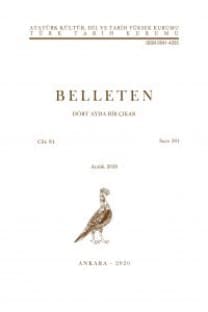Ankara'nın Eski Evleri, Türk Ev Kültürü, Müze Evler
Ankara, Türkiye Cumhuriyeti'nin başkenti olmadan önce bir vilayet merkezidir. Orta Anadolu'da demiryolu ile İstanbul’a bağlı bu vilayetin, kalesinin eskiliği, Ahi teşkilatının merkezi olarak da şöhreti olmuştur. Tarihte, Bayazıt-Timur savaşının geçtiği bölgedir diye adı geçer. Bütün bu tarihi devirlere, binlerce yıllık eski kalıntılara da değinecek Cumhuriyet devrimizde Türk heyetleri tarafından arkeolojik buluntular ve bu konudaki yayınlar Ankara'nın ve çevresinin en eski devirlerden beri Anadolu insanına mekan olduğunu göstermiştir. Ahlatlıkal Eti yokuşu gibi ... Yalnız benim, bu yazımda üzerinde durmak istediğim, nihayet iki üç asırlık geçmişten, ayakta kalan ve bugün de kullanılan evlerdir. Ev hayatı, ev kültürü bir milletin medeni olmasının en belirli örnekleridir. Aileler nasıl ki topluluğun küçük birlikleri ise, şehir ve kasabalarda da evler, bu yerleşik hayatın madde olarak görüntüleridir. Bugünkü yaşayış tarzı, ev ünitesini toplu, kalabalık apartmanlara terk etmektedir. Bu bir zaruret olmakla beraber eski aile hayatımızın ve ev kültürümüzün anılarını, eşyaların' da unutmamamız gerekir. Bu demek değildir ki, yeni hayat tarzına uymadan, bu eskiye dönelim ve o şekilde yaşayalım. Ancak her millet için, ev kültürünün yaşayış tarzının, örf ve adetlerin hangi devirde olursa olsun bilinmesi gereken ve üzerinde önemle durulacak bir konudur.
Anahtar Kelimeler:
Ankara Tarihi, Türk Kültür Tarihi, Türkiye Cumhuriyeti Tarihi, Ankara Mimarisi, Türk Ev Kültürü, Müze Evler
The Anglo-Turkish Conflict Fifty Years Ago
Fifty years ago at Chanak (Dardanelles), on Turkish territory, the Turkish Army under Mustafa Kemal (Atatürk), the national hero of the Gallipoli campaign, faced its British counterpart, commanded by General Sir Charles Harington, Commander-in-Chief, Army of Occupation. What was the British Army doing on Turkish soil, and why were the armies of these two nations poised for armed conflict? The story goes back to the First World War. The Ottoman Empire, which had participated in that War as an ally of the Central Powers (Germany, Austria-Hungary and Bulgaria), was defeated by the Entente Powers (Britain, France, Italy and Greece), and was forced to sign the Armistice of Mudros on 30th October, 1918. This Amistice some of the terms of which were deliberately made ambiguous, enabled the Allies to set about possessing the war spoils in the form of Tutkish territories which they claimed to be theirs "by virtue of the secret treaties and by right of conquest". The secret war-time agreements, contracted by the belligerent Allies on clifferent dates, had envisaged the complete dissolution of the Ottoman Empire and the division o Turkish territories amongst Britain, France, Italy and Tsarist Russia. They had also revealed the hypocrisy of the Allies, who had openly declared their war aims to be, inter alia, the preservation of the integrity and independence of the Turkish homelands.
Keywords:
Anglo-Turkish Conflict, 1922, Turkish War of Independence, The Great Offensive, Armistice of Mudanya,
- ISSN: 0041-4255
- Yayın Aralığı: Yılda 3 Sayı
- Başlangıç: 1937
- Yayıncı: Türk Tarih Kurumu
Sayıdaki Diğer Makaleler
Uluslararası XXIX. Şarkiyatçılar Kongresi
The Anglo-Turkish Conflict Fifty Years Ago
Preveze Deniz Muharebesine ilişkin Gerçekler
Sultan Cem'in Portreleri Hakkında
Mudanya Bırakışmasının Ellinci Yıldönümü
Ankara'nın Eski Evleri, Türk Ev Kültürü, Müze Evler
